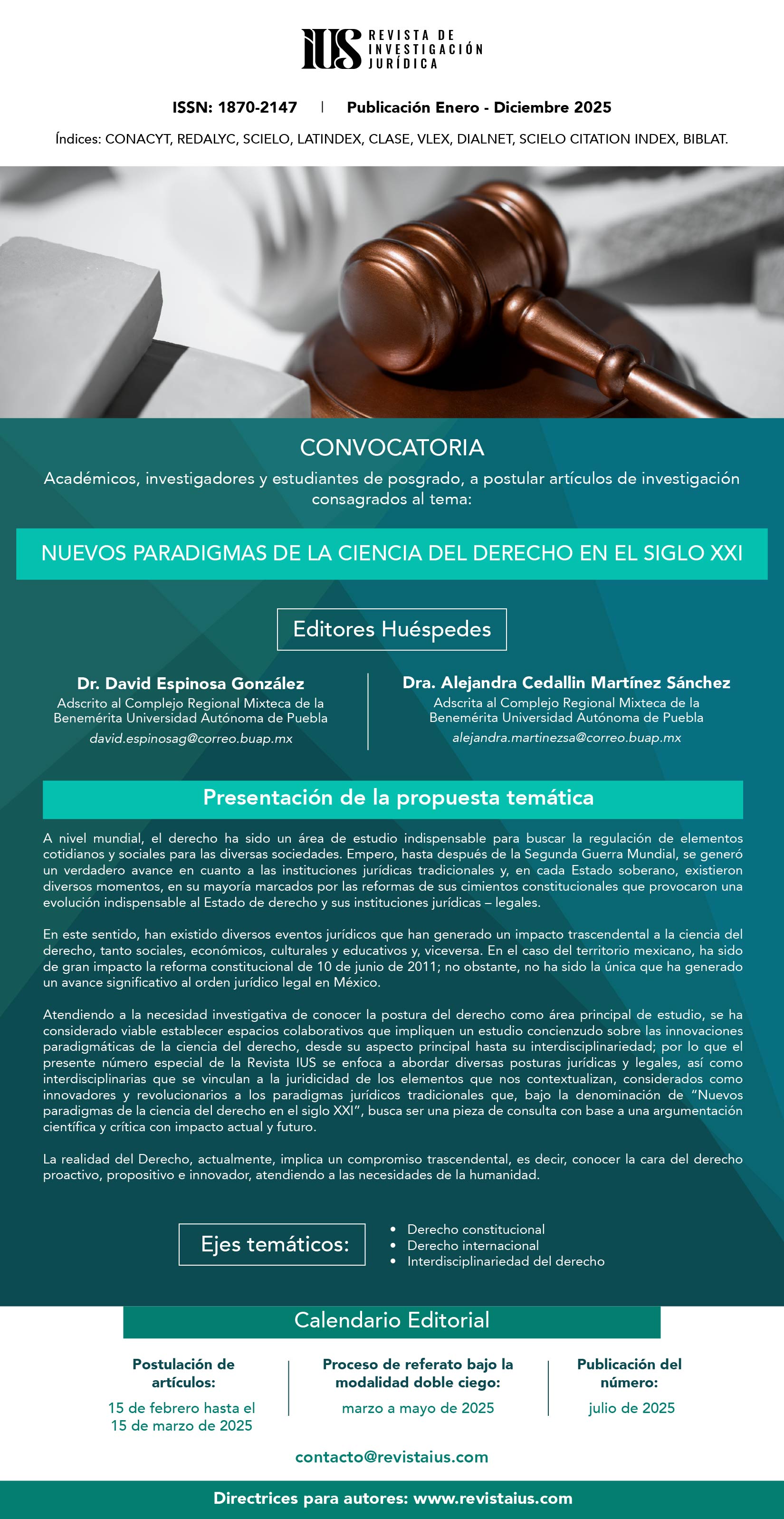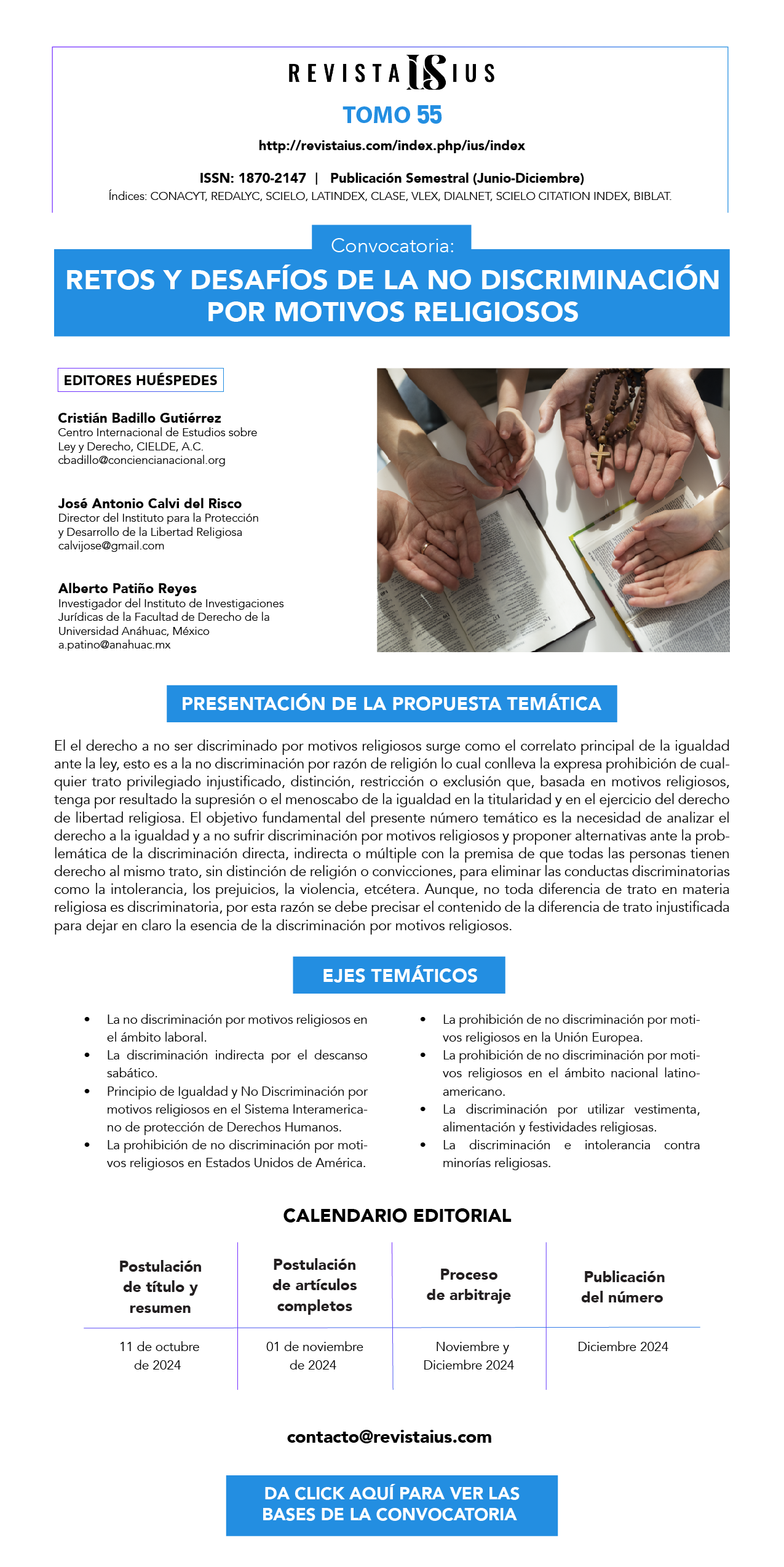La propiedad en el constitucionalismo liberal cubano de los siglos XIX y XX
DOI:
https://doi.org/10.35487/rius.v13i43.2019.438Abstract
El presente artículo tratará sobre la propiedad en el constitucionalismo liberal cubano de los siglos XIX y XX. Para ello comenzaremos por abordar las peculiaridades del liberalismo cubano en el contexto del siglo XIX, matizado por la pervivencia de la esclavitud y de la relación colonial con España, que incidieron en su eclosión y desarrollo. En segundo lugar trabajaremos la propiedad en el constitucionalismo español, dada su influencia en la doctrina y la práctica liberal cubana. En tercer lugar trabajaremos la propiedad en los antecedentes constitucionales cubanos del siglo XIX, destacando su impronta liberal. Por último trabajaremos la Constitución cubana de 1901 como síntesis del pensamiento liberal cubano del siglo XIX en torno a la propiedad. Con ello podremos concluir que la Constitución de 1901 representó la cúspide y el cierre del pensamiento liberal cubano del siglo XIX.
Downloads
Downloads
Published
Issue
Section
License
Copyright (c) 2018 REVISTA IUS (México)

This work is licensed under a Creative Commons Attribution-NonCommercial-ShareAlike 4.0 International License.
Revista IUS, published by the Legal Sciences Institute of Puebla A.C., is distributed under the Creative Commons Attribution-NonCommercial 4.0 International (CC BY-NC 4.0) license.
We authorize collaborators to upload a copy of their published work on their personal websites or any Open Access repository, provided that Revista IUS is specifically cited as the original source, indicating the year and issue of the respective example and adding the link to the webpage on which this publication can be freely consulted in toto and without charge: http://www.revistaius.com
Readers are free to:
Share, copy and redistribute the material via any medium or format.
The licensor cannot revoke these freedoms as long as you follow the license terms.
Under the following terms:
Attribution: You must give appropriate credit, provide a link to the license, and indicate if changes were made.
You may do so in any reasonable manner, but not in any way that suggests the licensor endorses you or your use.
NonCommercial – You may not use the material for commercial purposes.
If you remix, transform or build upon the licensed material, its distribution is not permitted.
Charges for managing articles: Revista IUS will not charge for receiving, processing or publishing articles (Article Processing Charge, or APC) submitted by authors.





